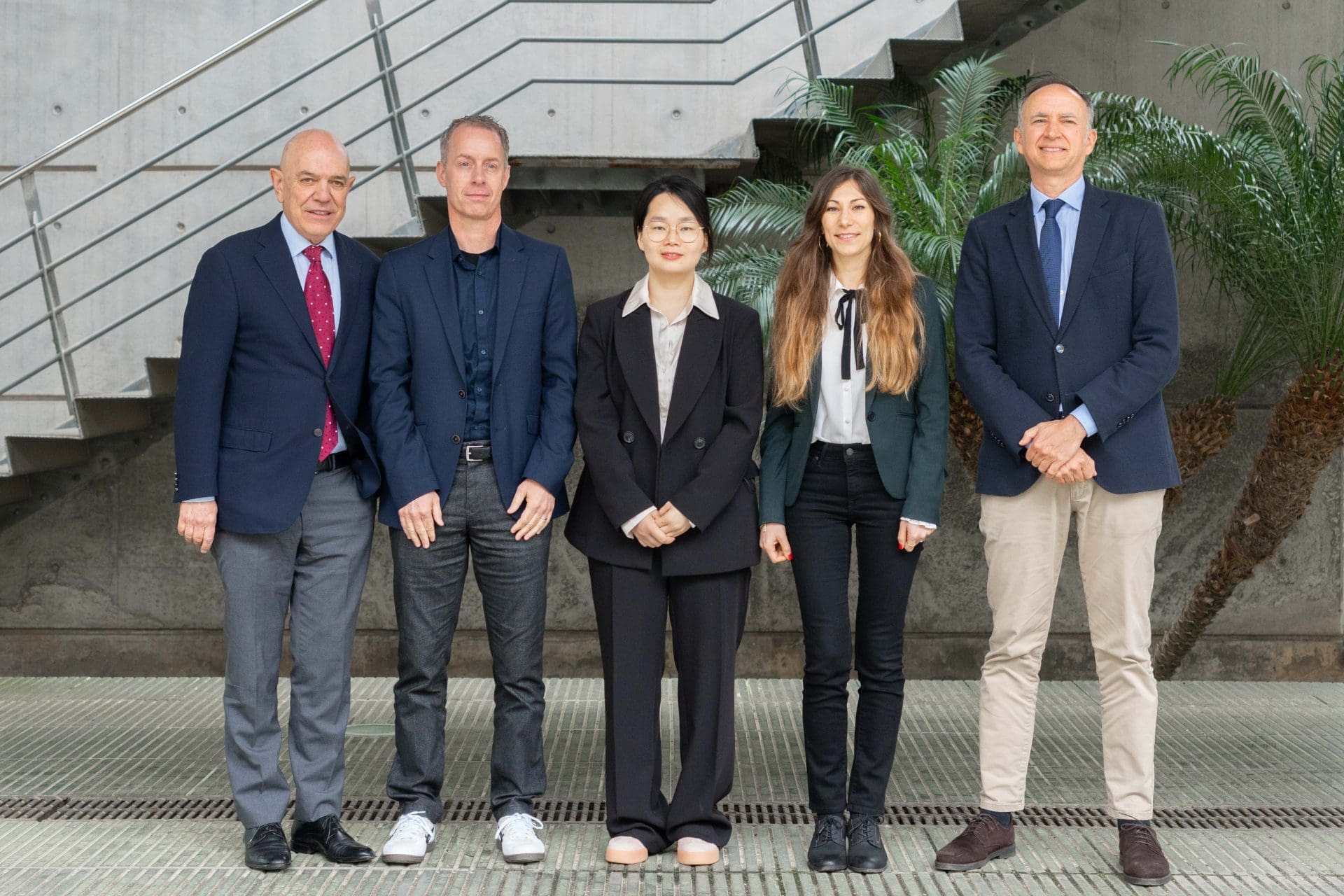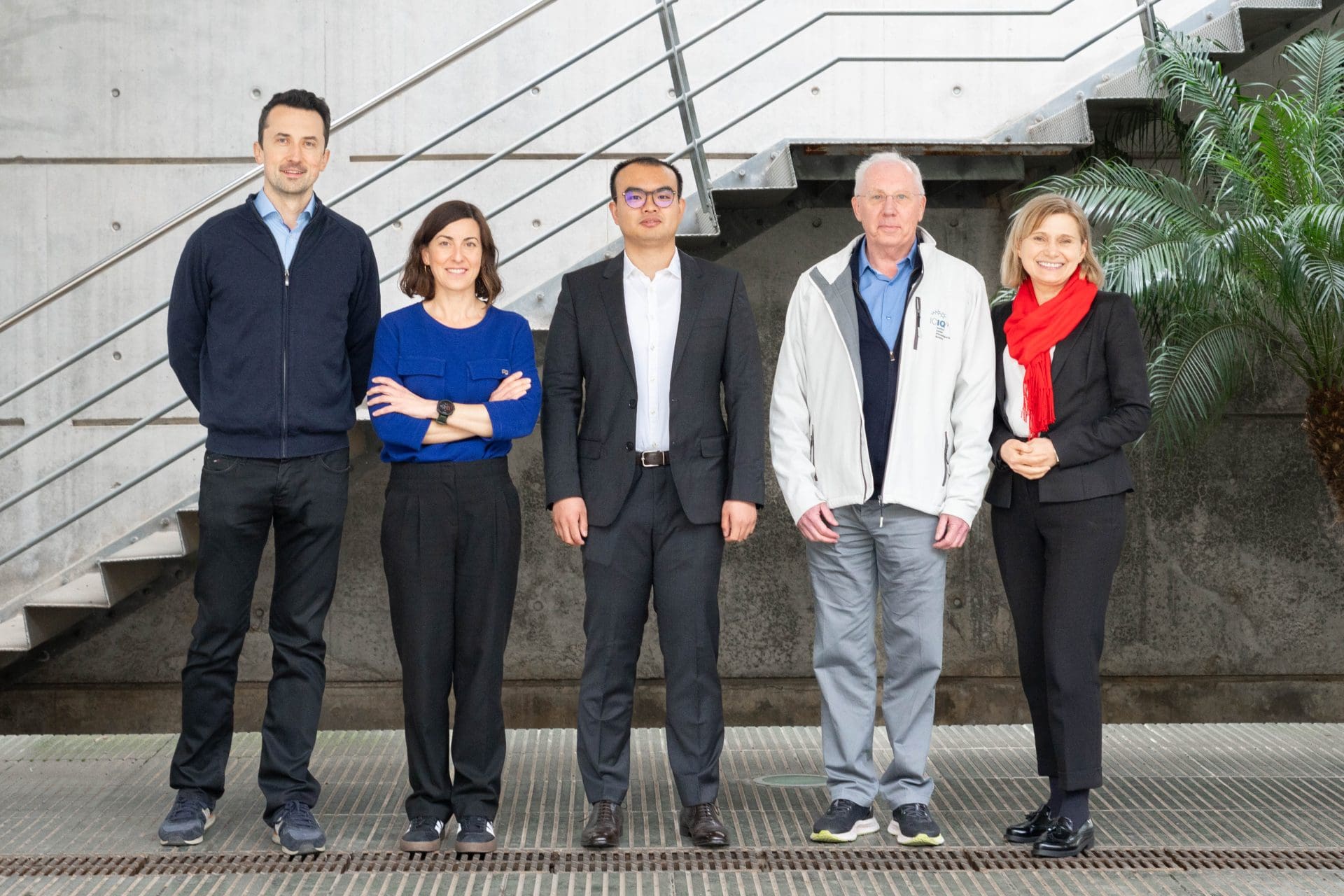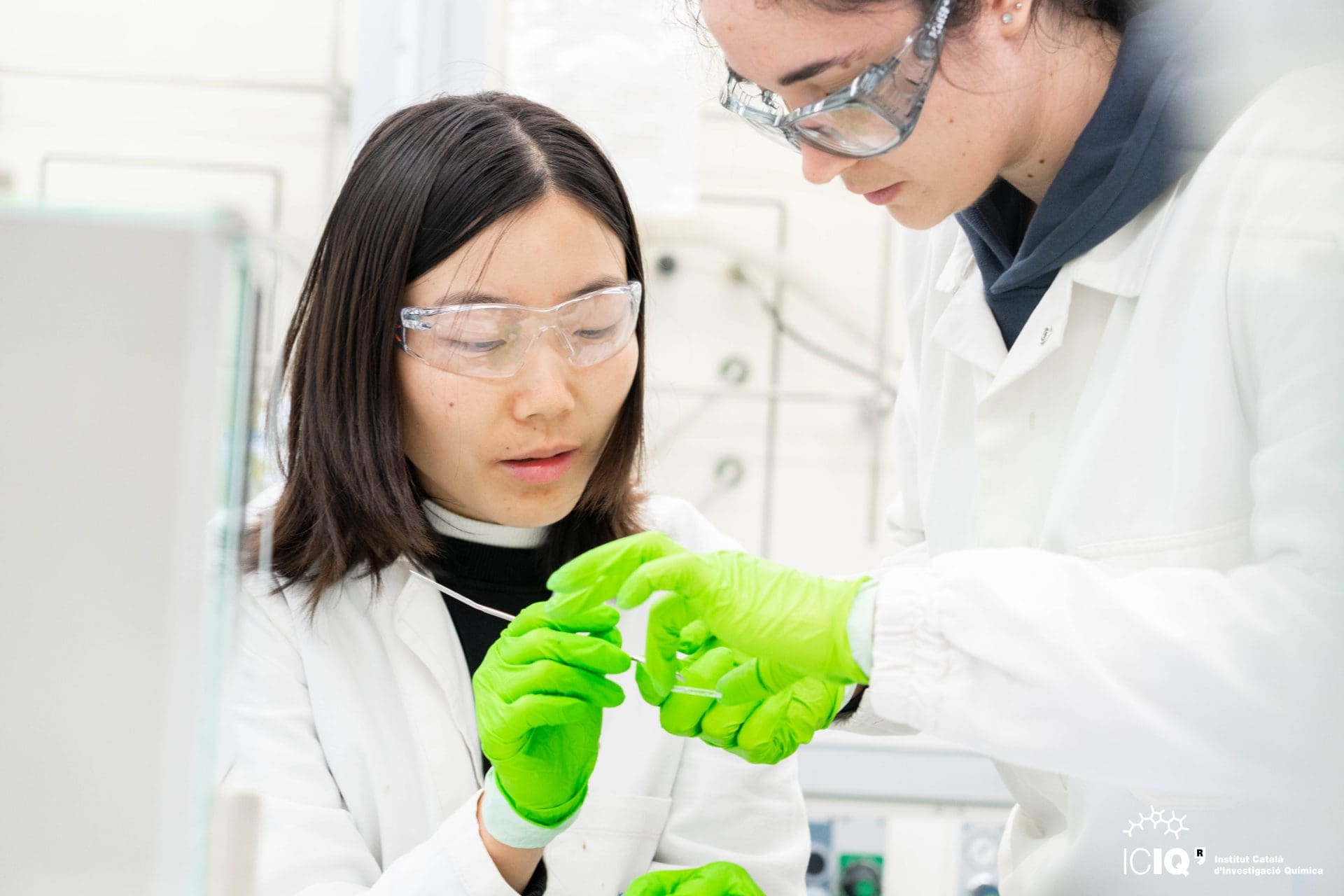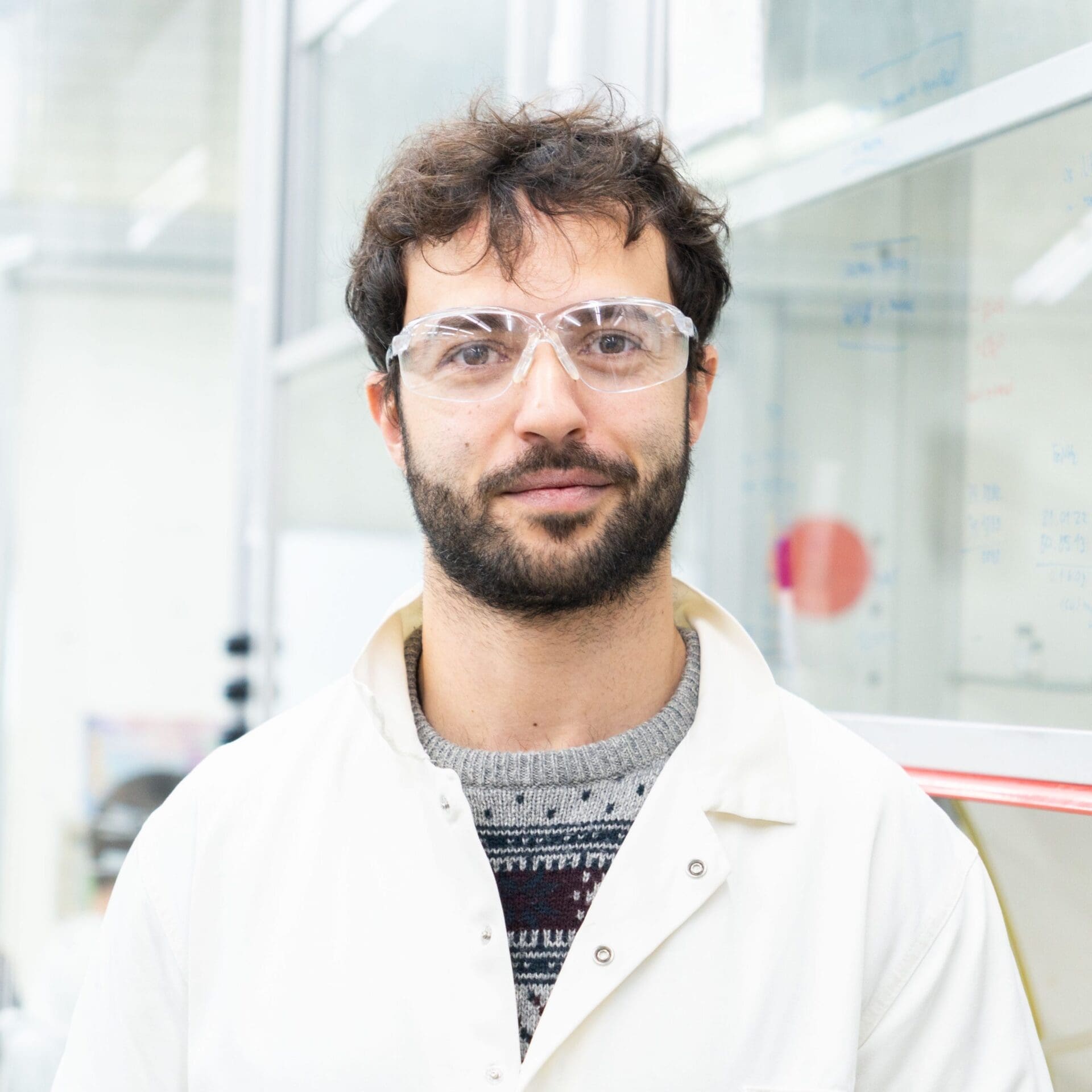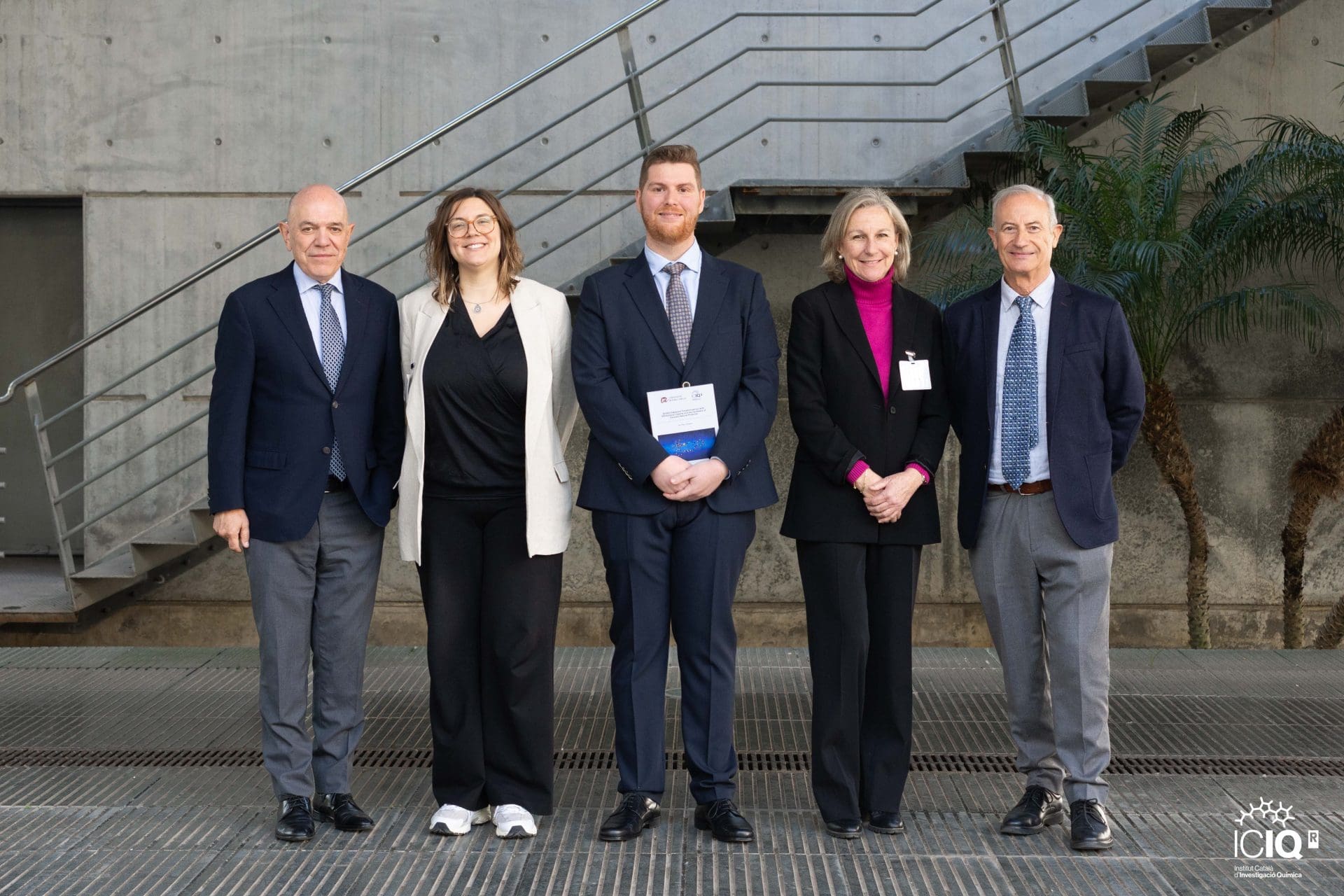Enhorabona, Dra. Garcia!
15th June 2023 -
Alèria Garcia, PhD student under the supervision of Prof. Arjan W. Kleij (ICIQ), has defended her thesis entitled “Mechanistic Investigations on Transition Metal-Catalyzed Asymmetric Allylic and Propargylic Substitution Reactions” publicly on June 15th.
The members of the evaluation committee were Prof. Rosario Fernández Fernández (Universidad de Sevilla), Dr. Ignacio Funes Ardoiz (Universidad de la Rioja) and Prof. Alicia Casitas Montero (Philipps-Universität Marburg)

Dr. Garcia was born in Sant Cugat del Vallès. She studied Chemistry at Autonoma University of Barcelona (2012-2016). After that, she joined ICIQ to do the Master in Synthesis, Catalysis and Molecular Design. In her free time she loves doing sports, playing cello and video-games.
Why did you become a scientist?
When I was a kid, my mum who is a biologist used to show me how plants and insects reproduce. I remember both of us in the garden talking about styles and stigma (reproductive organs of plants) and there is when I started getting curious about the surrounding nature.
What do you want to achieve as a scientist?
I would like to participate in the green industrial revolution that’s expected for this century. If I end up working only for the benefit of big pharma industries, please remind me my own words, and I will quit.
What is your thesis about?
I have been studying reaction mechanisms that achieve highly substituted stereo-centers using transition-metal catalysts.
What triggered your interest for the subject of your thesis?
I have always loved organometallic chemistry. I started specializing in this field while doing my Master studies under the supervision of Prof. Mónica H. Pérez-Temprano, and gained other skills while doing research abroad in Japan in the group of Prof. Julia Khusnutdinova. Then, I felt ready to start a PhD in reaction mechanisms in Prof. Kleij lab, where they develop new methodologies in different fields of chemistry, one of them being new asymmetric strategies towards highly congested centers using transition metals.
What applications can your thesis have in the future?
My thesis might set precedent for (i) future mechanistic investigations in the fields of propargylic and allylic chemistry and (ii) studies on homogeneous catalysis activation of 3rd row transition metals.
The thing that I like most about my thesis is….
I have been able to explore the three different systems of study using my own approaches. My thesis supervisor, Arjan, has given me absolute freedom to choose which techniques I would use for my studies and he has assisted me in everything else I have needed. I really appreciate this collaborative way of working.
From the lessons learnt (or skills developed) at ICIQ, which one do you value the most?
I value the relationships I have established with all the research supporting unit members. I have managed to learn new techniques while gaining new friendships. I am really happy with the human factor involved in this exchange.
What ICIQ moment you´ll never forget?
I remember quite a lot the summer and winter parties we used to celebrate before pandemics. Those were remarkable fun moments.
What will you miss the most from ICIQ?
Definitely, the friends I have made through these years.
What do you wish you had known at the beginning of your PhD?
That I would publish my 3 projects during the last year of my PhD. I would have stressed half of what I have experienced, which is a lot!
What advice do you have for someone who is starting their PhD now?
Your first independent project might take longer than the other ones. Do not worry! You are still adapting and getting to know around the institute and your group’s methods. Also, plan your reactions/syntheses as much in advance as possible. Book equipment and measuring times the week before to avoid unforeseen events. This way of planning has allowed me to finish 3 mechanistic projects in 3.5 years. It’s been painful but very gratifying.


Related news

Let's create a brighter future
Join our team to work with renowned researchers, tackle groundbreaking
projects and contribute to meaningful scientific advancements





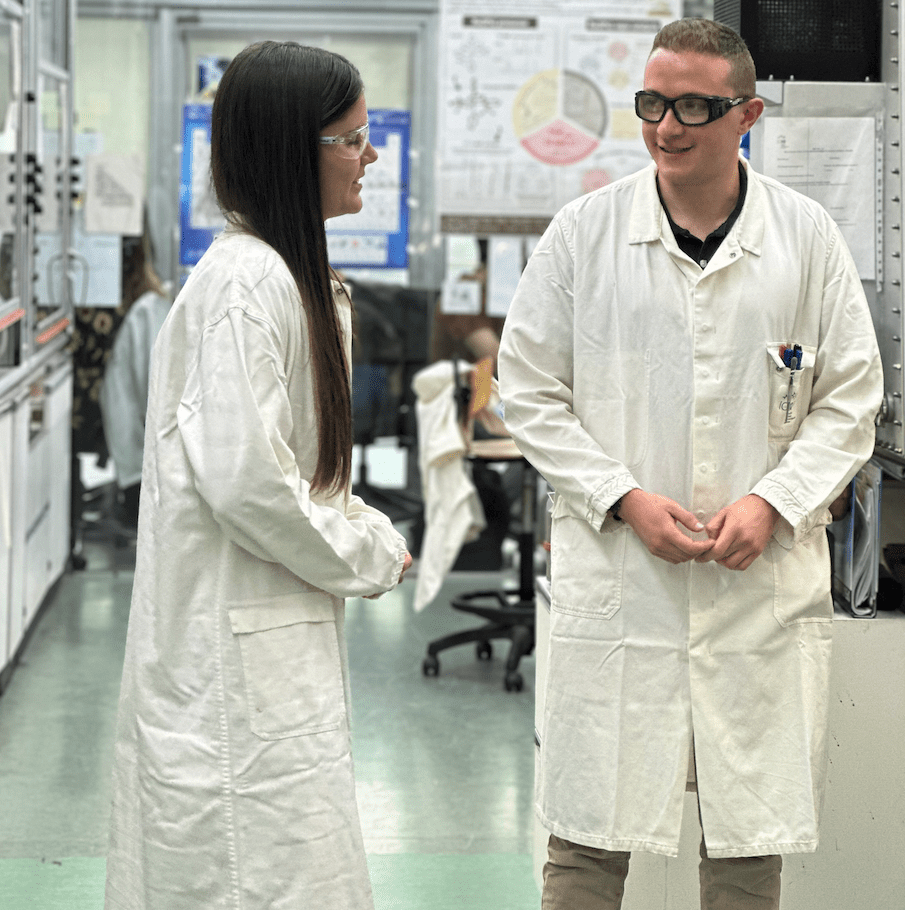
 14-03-2025
14-03-2025 
